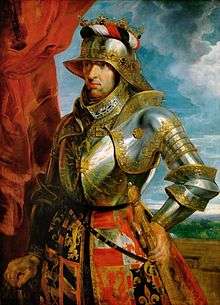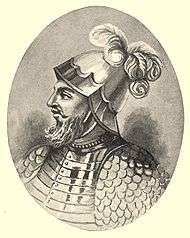1519
| Millennium: | 2nd millennium |
|---|---|
| Centuries: | 15th century · 16th century · 17th century |
| Decades: | 1480s · 1490s · 1500s · 1510s · 1520s · 1530s · 1540s |
| Years: | 1516 · 1517 · 1518 · 1519 · 1520 · 1521 · 1522 |
| 1519 by topic |
|---|
| Arts and science |
| Lists of leaders |
|
| Birth and death categories |
|
| Establishments and disestablishments categories |
|
| Works category |
|
| Gregorian calendar | 1519 MDXIX |
| Ab urbe condita | 2272 |
| Armenian calendar | 968 ԹՎ ՋԿԸ |
| Assyrian calendar | 6269 |
| Bengali calendar | 926 |
| Berber calendar | 2469 |
| English Regnal year | 10 Hen. 8 – 11 Hen. 8 |
| Buddhist calendar | 2063 |
| Burmese calendar | 881 |
| Byzantine calendar | 7027–7028 |
| Chinese calendar | 戊寅年 (Earth Tiger) 4215 or 4155 — to — 己卯年 (Earth Rabbit) 4216 or 4156 |
| Coptic calendar | 1235–1236 |
| Discordian calendar | 2685 |
| Ethiopian calendar | 1511–1512 |
| Hebrew calendar | 5279–5280 |
| Hindu calendars | |
| - Vikram Samvat | 1575–1576 |
| - Shaka Samvat | 1440–1441 |
| - Kali Yuga | 4619–4620 |
| Holocene calendar | 11519 |
| Igbo calendar | 519–520 |
| Iranian calendar | 897–898 |
| Islamic calendar | 924–926 |
| Japanese calendar | Eishō 16 (永正16年) |
| Javanese calendar | 1436–1437 |
| Julian calendar | 1519 MDXIX |
| Korean calendar | 3852 |
| Minguo calendar | 393 before ROC 民前393年 |
| Nanakshahi calendar | 51 |
| Thai solar calendar | 2061–2062 |
| Wikimedia Commons has media related to 1519. |
Year 1519 (MDXIX) was a common year starting on Saturday (link will display the full calendar) of the Julian calendar.
Events
January–June
- January 1 – Ulrich Zwingli preaches for the first time as people's priest of the Great Minister in Zürich.
- March 4 – Hernán Cortés and his conquistadores land in Mexico.
- April 21 (Maundy Thursday) – Hernán Cortés reaches San Juan de Ulúa; next day (Good Friday) he sets foot on the beach of modern-day Veracruz.[1]
- May 2 – Leonardo Da Vinci dies in France.
- June 28 – Charles I of Spain becomes Charles V, Holy Roman Emperor (rules until 1556).
July–December
- July 4 – Martin Luther joins the debate regarding papal authority against Johann Eck at Leipzig.
- July 10 – The Prince of Ning rebellion begins after Zhu Chenhao declares the Ming dynasty's Zhengde Emperor a usurper and leads his army north in an attempt to capture Nanjing.
- August 15 – Panama City is founded.
- August 20 – Ming dynasty Chinese philosopher and general Wang Yangming, governor of Jiangxi, defeats Zhu Chenhao, ending the Prince of Ning rebellion. Wang has expressed the intention of using fo–lang–ji cannons in suppressing the rebellion, probably the earliest reference in China to the breech-loading Frankish culverin.
- September 20 – Ferdinand Magellan departs from Spain with a fleet of five ships to sail westabout to the Spice Islands.
- October 12 – Hernán Cortés and his men, accompanied by 3,000 Tlaxcalans, enters Cholula.
- November 8 – Hernán Cortés enters Tenochtitlan and the court of Aztec ruler Moctezuma.
Date unknown
- The first civil revolt in Anatolia took place which was led by Alevi preacher Celâl.
- The Spanish find Barbados.
- Havana moves from the southern to the northern part of Cuba.
- A large pandemic spreads from the Greater Antilles into Central America, and perhaps as far as Peru in South America. This widespread epidemic kills off much of the indigenous populations in these areas, the first widely documented epidemic in the New World.[2]
- Central Mexico Amerindians' population – 25.3 million.
- The Mexican Indian Wars begin.
- Postclassic period ends in Mesoamerica.
- Cacao comes to Europe.
- St. Olaf's Church, Tallinn is completed in Estonia.
- The artistic form appears in Georgia and spreads.
- The first recorded fatal accident involving a gun in England is recorded at Welton, East Riding of Yorkshire.
Births

Catherine de Medici born on April 13
- January 1 – Gómez Pérez Dasmariñas, Spanish colonial administrator (d. 1593)
- January 18 – Isabella Jagiellon, Queen (d. 1559)
- February 5 – René of Châlon, Prince of the House of Orange (d. 1544)
- February 15 – Pedro Menéndez de Avilés, first Spanish Governor of Florida (d. 1574)
- February 16 – Gaspard de Coligny, French Huguenot leader (d. 1572)
- February 17 – Francis, Duke of Guise, French soldier and politician (d. 1563)
- February 19 – Froben Christoph of Zimmern, Author of the Zimmern Chronicle (d. 1566)
- March 4
- Adrian Stokes, English politician (d. 1586)
- Hindal Mirza, Mughal Empire emperor (d. 1551)
- March 17 – Thoinot Arbeau, French priest and author (d. 1596)
- March 22 – Catherine Willoughby, 12th Baroness Willoughby de Eresby, English Baroness (d. 1580)
- March 31 – King Henry II of France (d. 1559)
- April 13 – Catherine de' Medici, queen of Henry II of France (d. 1589)
- May 27 – Girolamo Mei, Italian humanist historian (d. 1594)
- June 6 – Andrea Cesalpino, Italian philosopher, physician, and botanist (d. 1603)
- June 12 – Cosimo I de' Medici, Grand Duke of Tuscany (d. 1574)
- June 15 – Henry FitzRoy, 1st Duke of Richmond and Somerset, Royal bastard of Henry VIII (d. 1536)
- June 23 – Johannes Goropius Becanus, Dutch physician, linguist, and humanist (d. 1572)
- June 24 – Theodore Beza, French theologian (d. 1605)
- July 20 – Pope Innocent IX (d. 1591)
- September 23 – Francis, Count of Enghien, French military leader (d. 1546)
- October 14 – Marie of Brandenburg-Kulmbach, Princess of Brandenburg-Kulmbach and by marriage Electress Palatine (d. 1567)
- November 9 – Ogasawara Nagatoki, Daimyo (d. 1583)
- November 22 – Johannes Crato von Krafftheim, physician (d. 1585)
- date unknown
- Janet Beaton, Scottish noblewoman (d. 1569)
- Nicholas Grimald, English poet (d. 1562)
- Ikeda Nagamasa, Japanese military commander (d. 1563)
- Edwin Sandys, English prelate (d. 1588)
- Imagawa Yoshimoto, Japanese warlord
- Stanisław Zamoyski, Polish nobleman (d. 1572)
- probable
- Thomas Gresham, English merchant and financier (d. 1579)
- Edmund Grindal, Archbishop of Canterbury (d. 1583)
- possible
- Catherine Howard, fifth Queen of Henry VIII of England, (born between 1518 and 1524; d. 1542)
Deaths

Maximilian I, Holy Roman Emperor died on January 12, 1519

Vasco Nunez de Balboa died on January 15, 1519

Leonardo da Vinci died on May 2, 1519
- January 12 – Maximilian I, Holy Roman Emperor (b. 1459)
- January 15 – Vasco Núñez de Balboa, Spanish explorer (b. 1475)
- February 6 – Lorenz von Bibra, Prince-Bishop of the Bishopric of Würzburg (b. 1459)
- March 29 – Francesco II Gonzaga, Marquess of Mantua (b. 1466)
- May 2 – Leonardo da Vinci, Italian inventor and painter (b. 1452)
- May 4 – Lorenzo de' Medici, Duke of Urbino (b. 1492)
- June 2 – Philippe de Luxembourg, French Cardinal (b. 1445)
- June 24 – Lucrezia Borgia, Duchess of Ferrara (b. 1480)
- August 11 – Johann Tetzel, German opponent of the Reformation (b. 1465)
- August 23 – Philibert Berthelier, Swiss patriot (b. c. 1465)
- September 10 – John Colet, English churchman and educator (b. 1467)
- date unknown
- William Grocyn, English scholar (b. 1446)
- Jo Gwang-jo (Cho Kwangjo), Korean scholar (b. 1482)
- Bars Bolud Jinong, Mongol khan (b. 1490)
- Ambrosius Holbein, German painter (b. 1494)
References
- ↑ Díaz del Castillo, Bernal. "Chapter 38". Historia Verdadera de la conquista de la Nueva España.
- ↑ Crosby, Jr., Alfred W. The Columbian Exchange: Biological and Cultural Consequences of 1492.
This article is issued from Wikipedia - version of the 11/23/2016. The text is available under the Creative Commons Attribution/Share Alike but additional terms may apply for the media files.
